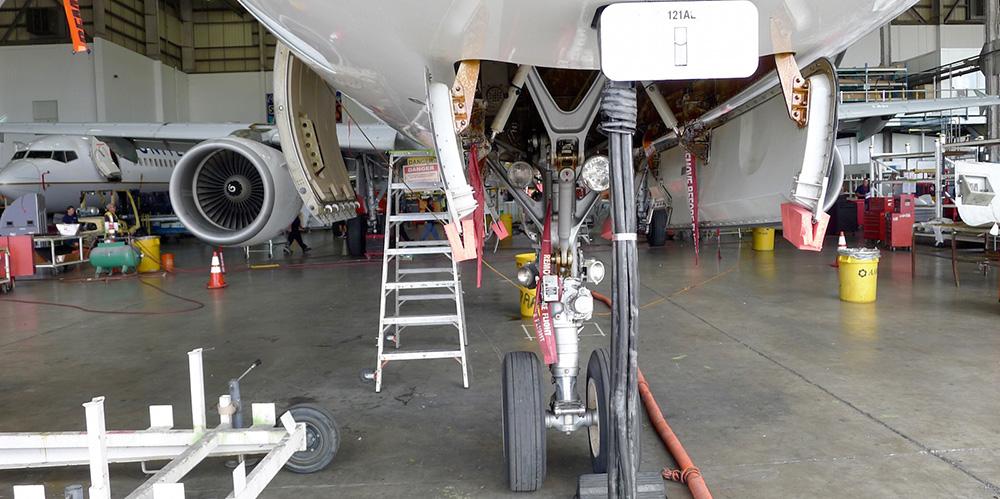
The number of aircraft approaching their prime maintenance-demand periods in the next few years will more than offset any surge in retirements triggered by parked aircraft being declared officially removed from the fleet, a Melius Research analysis shows. For aftermarket providers, this should ease concerns about the negative ramifications of a retirement spike.
"Some investors fear that elevated oil prices, ESG pressures and fleet renewal trends will drive a wave of aircraft retirements that will be a headwind for aftermarket suppliers,” Melius analyst Robert Spingarn wrote in a recent investor note.
Using Aviation Week Fleet Discovery data, Spingarn calculates that some 2,400 aircraft are inactive but not officially retired. As oil prices rise and new deliveries arrive, this figure could shrink, and the corresponding number of officially retired aircraft—typically somewhere around 600-800 annually pre-pandemic, but fewer in 2021—could jump.
At first blush, this should worry aftermarket providers that service older airframes and engines. But, as Spingarn points out, the years leading into the downturn featured record-setting deliveries. Many of those aircraft and engines will soon need major overhauls, and not all the work will be covered under warranties.
"For us, the focus on retirements misses the point that in the next few years a record number of aircraft will age out of warranty coverage,” Spingarn wrote. "Although the data points to ~2,400 aircraft in the active fleet that are effectively retired, ~4,800 passenger aircraft that were delivered in 2016-2018 will be exiting their warranty period over the next few years.”
While the older aircraft are typically more profitable for maintenance providers, the volume of newer airframes and engines that will soon need work "should mitigate the pricing differential,” he added.





